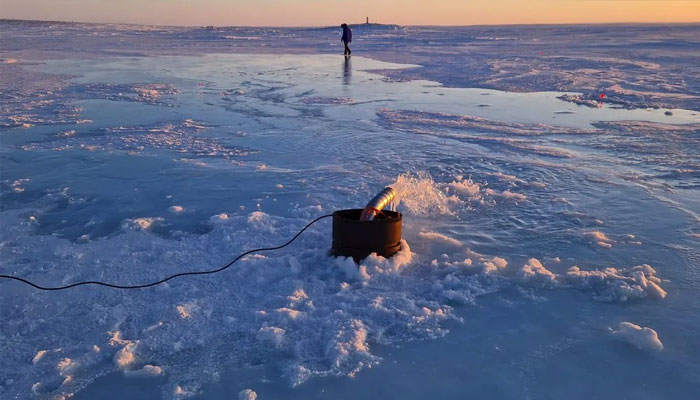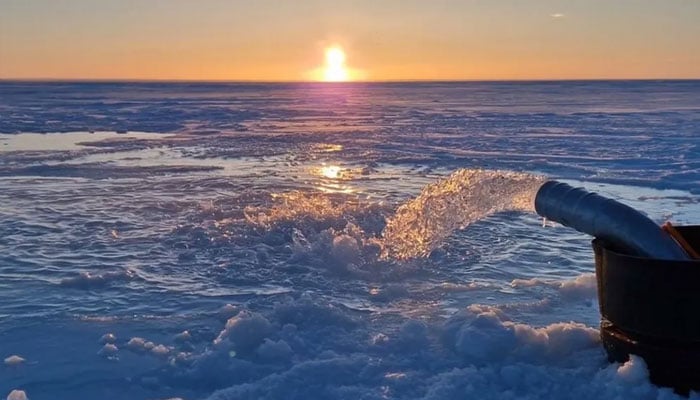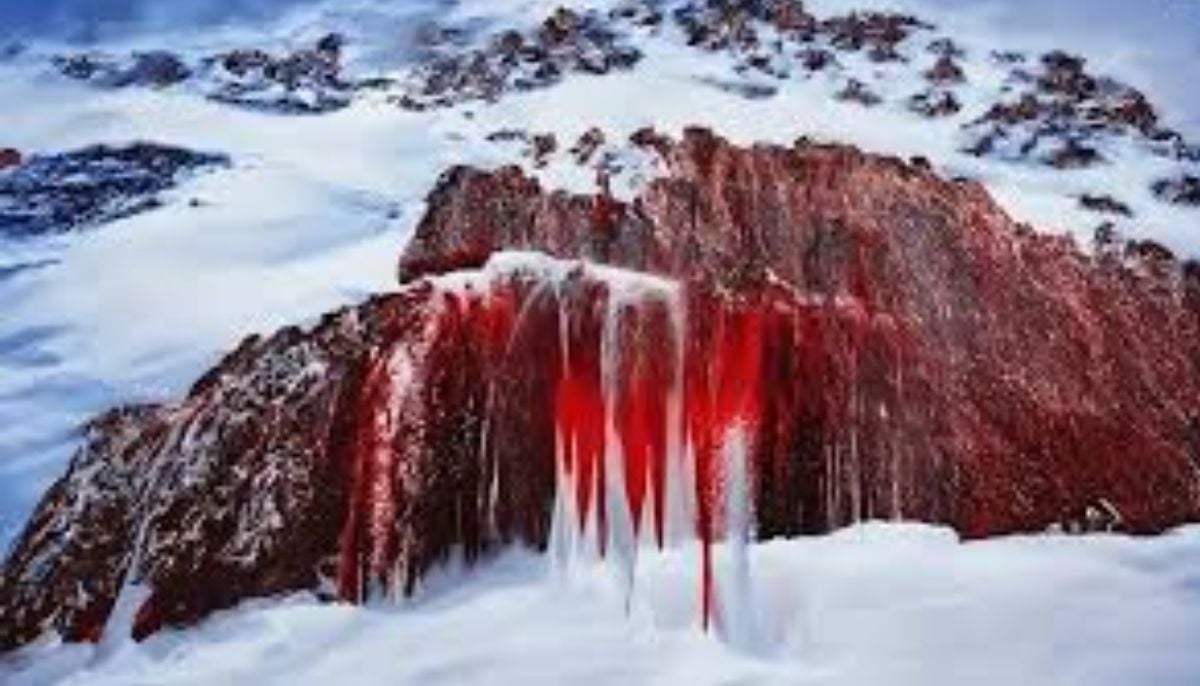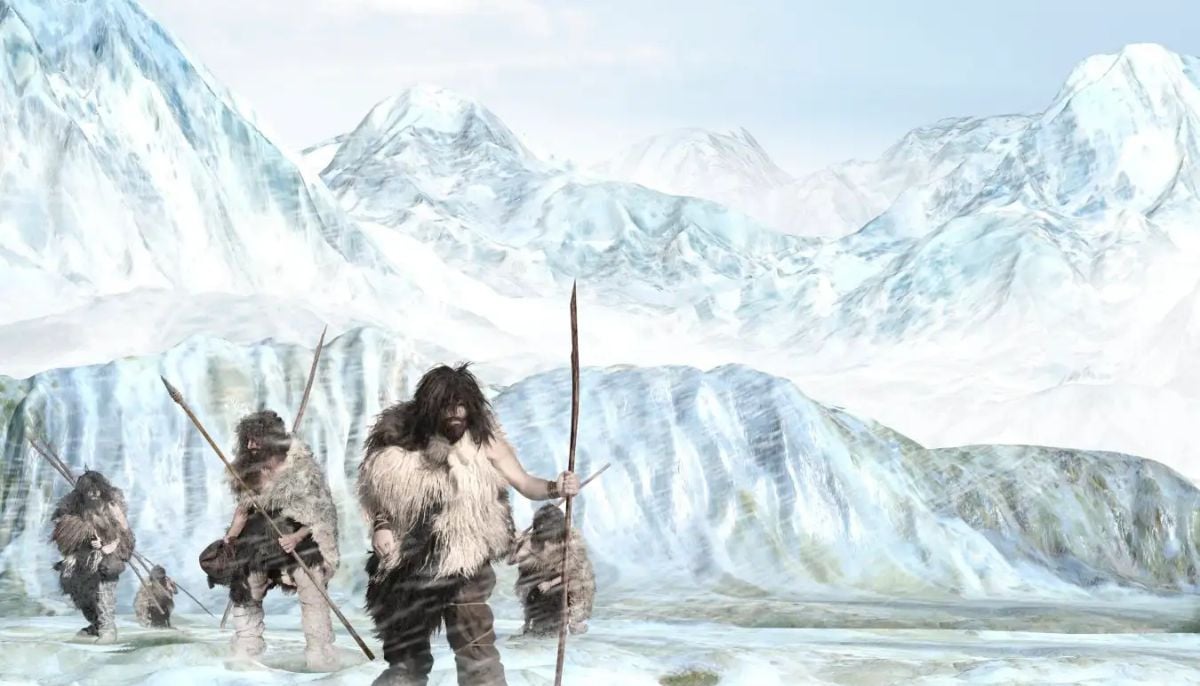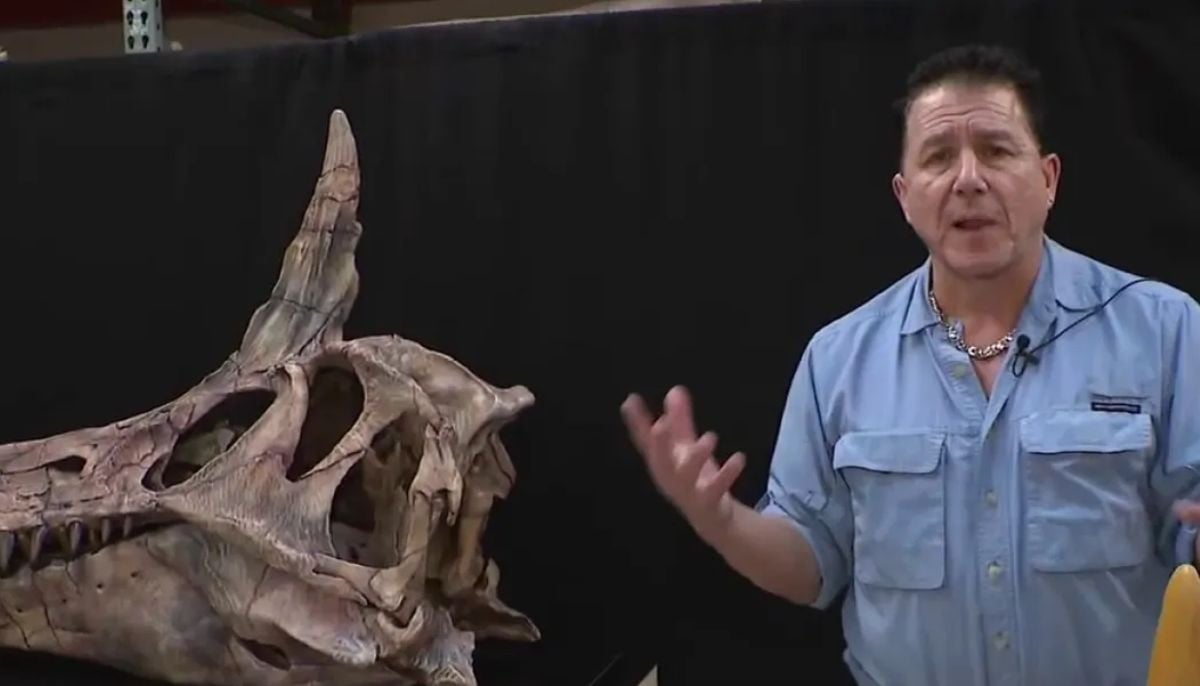This outrageous idea could 'slow' global warming
Ice is melting, exposing dark surface of ocean which absorbs more energy leading to an increase in heat
In the far reaches of the Arctic, scientists embark on an audacious mission: slowing down sea-ice to counter the irresistible impacts of climate change, BBC reported.
Putting on their parks to protect against the harsh cold, they watch the seawater pouring over the ice, in an attempt to slow down global warming. The goal is clear: as the ice of the sea is melting, exposing the dark surface of the ocean which absorbs more energy leading to an increase in the heat, the researchers try to stop this process.
Professor Shaun Fitzgerald, the person in charge of the project at the University of Cambridge's Centre for Climate Repair, imagines that ice could stop or even reverse melting by making it thicker.Yet, skepticism abounds.
Critics sound cautious about the unpredictable outcomes and ask for predominance of emission decrease before geoengineering.
Undaunted, the team continues the mission watching ice to grow thicker while the Arctic winds and freezing temperatures keep blowing. Although positive changes might have been noted, concerns still remain about the efficiency and impact in the long run.
At the same time this issue is also being faced with challenges such as ecological disruption and the diversion of focus from the core solutions. Although the researchers appreciate the fact that there are limitations to the technology, they still believe that a thorough assessment is necessary before the use of this technology becomes widespread.
The Arctic experience gives an idea about the effects of climate changes on a whole planet. As the rate of ice loss is expected to be intensified, solutions other than this become inevitable.
Amidst the debate, one truth remains: focused actions on decarbonisation are thus necessary. As the world is facing an unknown future, searching for efficient climate solutions becomes much more crucial.
-
Climate change vs Nature: Is world near a potential ecological tipping point?
-
125-million-year-old dinosaur with never-before-seen spikes stuns scientists in China
-
Scientists stunned as shark appears for first time in Antarctic Southern Ocean waters
-
New study suggests universe can end in ‘Big Crunch’ in 20bn years
-
Hidden Venus: New data discovers massive underground Lava Tube
-
‘Earth is defenseless against city-killer asteroids’: NASA issues stark warning
-
Annular solar eclipse 2026: Where and when to see the ‘Ring of fire’
-
Bright green comet C/2024 E1 nears closest approach before leaving solar system
